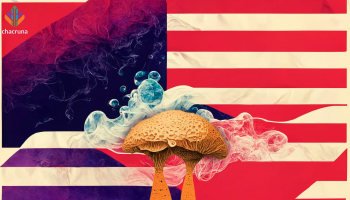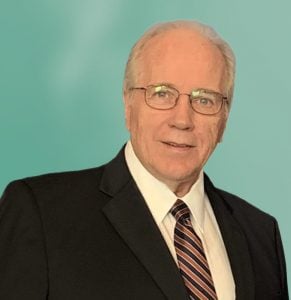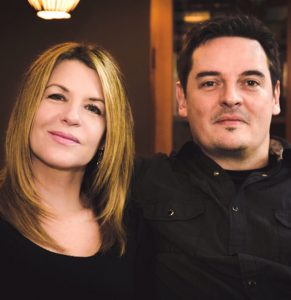Disclaimer: Psychedelics are largely illegal substances, and we do not encourage or condone their use where it is against the law. However, we accept that illegal drug use occurs and believe that offering responsible harm reduction information is imperative to keeping people safe. For that reason, this article is designed to enhance the safety of those who decide to work with psychedelics.
March was an exciting month for psychedelic enthusiasts, supporters, and entrepreneurs worldwide. Proponents in Canada and the US launched new clinical trials, adult-use experiments, and ballots that promise to broaden psychedelic access and knowledge worldwide. Here we review the top psychedelics news stories, research findings, and legal milestones you need to know for March 2022.
First commercial trial for LSD and anxiety is set to begin
Struggling with constant, unexplained worry, people with Generalized Anxiety Disorder (GAD) have found only limited relief from the Western treatment model. Fortunately, trailblazing organizations have stepped in to offer a psychedelic approach to healing. Non-profit institutions like the Multidisciplinary Association for Psychedelic Studies (MAPS) have made significant strides in psychedelic research and advocacy. More recently, pharmaceutical organizations have also joined the movement. On March 15, Novamind, a Canadian company that runs ketamine clinics, and MindMed, a biotech company that develops medicines, announced they would partner on the first commercial study of LSD in over 40 years. Working with 200 study participants, MindMed and Novamind hope to prove their LSD drug (MM-120) can reduce anxiety symptoms after a single dose for at least 12 weeks. Bottom line: Commercial psychedelic research is both positive and thought-provoking. On the one hand, commercialization means psychedelic therapies are well on their way to widespread availability. On the other hand, we must closely monitor the trajectory to ensure safe and equitable access for all.
Research mounts on MDMA for eating disorders
People with eating disorders exist in a mental civil war with devastating physical consequences. In addition to weight and food struggles, they often suffer from anxiety, OCD, and PTSD. Their minds become tyrannical, enforcing damaging patterns—patterns that psychedelics may be able to shift by loosening the ego’s control. Disrupting these damaging mental habits is precisely what MAPS explored in its recent trial of MDMA for PTSD patients with eating disorders. Following the study, four of the five trial patients diagnosed with eating disorders were clinically “cured”. Additionally, 12 at-risk participants saw their eating disorder symptom scores drop by half. Comparatively, the placebo group did not see eating disorder risk reduction. Bottom line: The small sample size shows MDMA has a positive effect on reducing eating disorder symptoms. Now we wait for more clinically significant research from MAPS’s new Phase 2 Study.
Grow 1 Year's Worth of Microdoses in Just 6 Weeks
Third Wave partnered with top mycologists to create the world’s easiest and best mushroom growing program (kit, course, and expert support).
- Pre-sterilized and sealed
(ready to use out of the box) - Step-by-step video and text course
- Access to growing expert in community
- Make your first harvest in 4-6 weeks
- Average yield is 1 - 4 ounces (28-108g)
- Fits in a drawer or closet
- Enter info for Third Wave discounts:
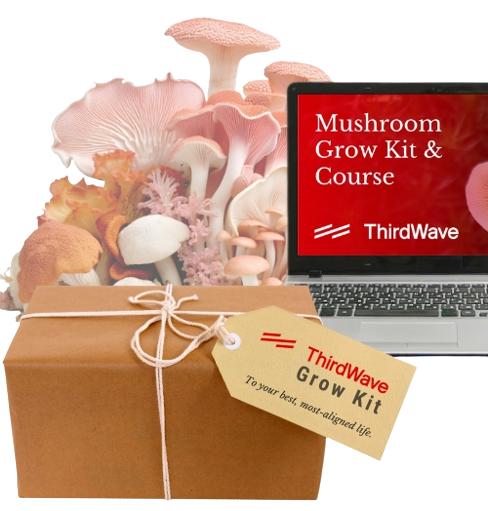
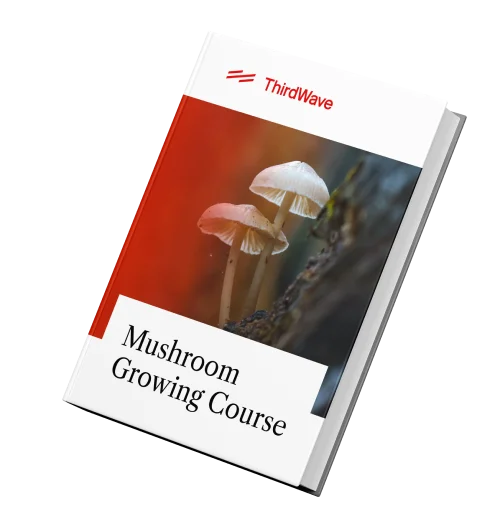
Grow 1 Year's Worth of Microdoses in Just 6 Weeks
Third Wave partnered with top mycologists to create the world’s easiest and best mushroom growing program (kit, course, and expert support).
- Pre-sterilized and sealed
(ready to use out of the box) - Step-by-step video and text course
- Access to experts in community
- Make your first harvest in 4-6 weeks
- Average yield is 1 - 4 ounces (28-108g)
- Fits in a drawer or closet
- Enter info for Third Wave discounts
Vancouver dispensaries are openly selling magic mushrooms
In brave defiance of Canada’s Controlled Drugs and Substances Act (CDSA), at least four trailblazing retail dispensaries openly serve adult-use psilocybin throughout Vancouver. While it sounds risky, what matters more than prohibition is whether a business is acting responsibly, whether it serves its community’s needs, and whether local lawmakers will enforce the statutes. And based on the Vancouver Police Department’s lack of action so far, psilocybin seems low on their priority list. As a result, adult Canadians who sign medical release forms have open access to psilocybin, ranging from subthreshold microdoses to macrodose products. In a recent Vice article, dispensary owner Dana Larsen said, “Within a few years, there’s going to be hundreds of mushroom and psychedelic dispensaries across Canada.” Bottom line: Some Canadian dispensaries are taking a stand on psilocybin, contributing to a unique global standard of testing federal drug laws.
New psychedelic journal launching in 2023
From indigenous shamans to Western scientists, experts have studied psychedelics for hundreds of years. There is no shortage of papers covering topics from spiritual awakenings to mental health relief. Yet, aside from the Journal of Psychedelic Studies, few (if any) publications are laser-focused on these promising substances. Fortunately, as the third wave of psychedelic acceptance expands, more publishers are taking notice. Mary Ann Liebert Inc. publishers announced that it will launch a peer-reviewed Psychedelic Medicine journal to amplify the “growing influential research and clinical applications in this pivotal field.” Interested psychonauts can preview the journal by the end of the year. Bottom line: As psychedelic studies proliferate, researchers need more outlets to spread the word. The Psychedelic Medicine journal is just the beginning.
Grow 1 Year's Worth of Microdoses in Just 6 Weeks
Third Wave partnered with top mycologists to create the world’s easiest and best mushroom growing program (kit, course, and expert support).
- Pre-sterilized and sealed
(ready to use out of the box) - Step-by-step video and text course
- Access to growing expert in community
- Make your first harvest in 4-6 weeks
- Average yield is 1 - 4 ounces (28-108g)
- Fits in a drawer or closet
- Enter info for Third Wave discounts:


Grow 1 Year's Worth of Microdoses in Just 6 Weeks
Third Wave partnered with top mycologists to create the world’s easiest and best mushroom growing program (kit, course, and expert support).
- Pre-sterilized and sealed
(ready to use out of the box) - Step-by-step video and text course
- Access to experts in community
- Make your first harvest in 4-6 weeks
- Average yield is 1 - 4 ounces (28-108g)
- Fits in a drawer or closet
- Enter info for Third Wave discounts
Maryland discuss bill to fund psychedelics research and access
A Maryland House of Delegates Committee recently held a hearing on creating a psychedelics access fund. The Post-Traumatic Stress Disorder and Traumatic Brain Injury Alternative Therapies Fund could give Maryland’s veterans access to psychedelics like psilocybin, MDMA, and ketamine to help them find relief. Along with the Fund, the measure would support further research into clinical uses for psychedelic substances. Maryland’s Department of Health would be required to periodically consult with the Department of Veterans Affairs, Johns Hopkins University, the University of Maryland, Sheppard Pratt Hospital, and the Walter Reed National Military Medical Center—presumably to establish quality-control measures. Bottom line: Lawmakers in Maryland and throughout the US realize that caring for veterans is more critical than preconceived notions about psychedelics. They are stepping up to advocate for alternative therapies and building a framework for a radically different medical model.
Colorado activists pursue psychedelics reform for November ballot
Following Oregon, Colorado may eventually be the second US state to legalize psychedelic therapy. After reviewing four reform ballots, state activists decided to proceed with one comprehensive bill to legalize psilocybin and create a path for other entheogenic substances. Initiative 58 (of the Natural Medicine Health Act of 2022) would create licensed “healing centers” for people suffering from mental health conditions, provide a pathway to seal records of prior psychedelics convictions, and eventually allow regulators to vote on DMT, ibogaine, and mescaline legalization. The team behind the campaign has requested Colorado’s permission to gather the signatures to put the initiative onto the ballot in November. Bottom line: The campaign managers behind Denver’s 2019 historic psychedelic decriminalization vote are the same people representing Initiative 58. With their expertise and popular support, all signs point to a positive outcome. Now, we wait for Colorado lawmakers to advance the initiative into a ballot.
March marked another memorable month toward progressing the psychedelic mission. We look forward to continuously updating you with the latest, high-quality news surrounding plant medicines, clinical developments, education, and more. Did you enjoy this article? Let us know! See something missing? We’ll consider adding it. Contact us today.



